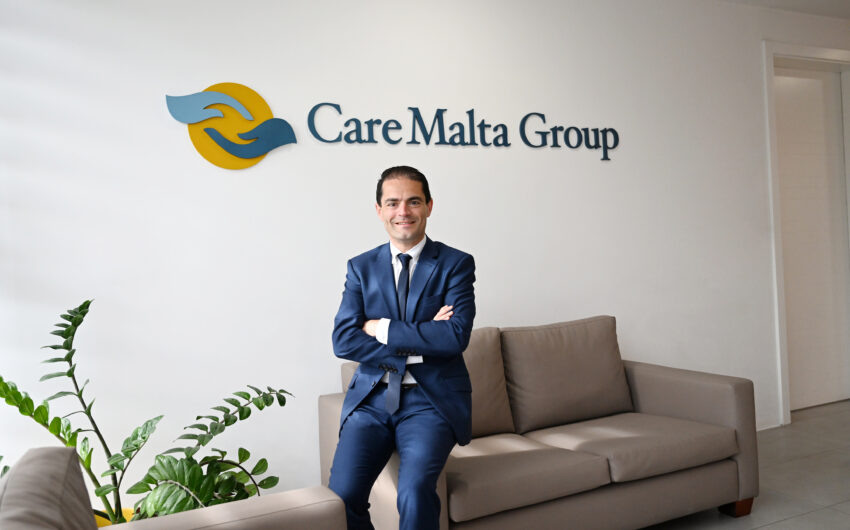
“I remember Casa Arkati opening 30 years ago when residential homes for the elderly were a bit taboo and considered by many as a last resort,” he starts off.
Over the years, people warmed up to the idea so much that nowadays some include residential homes in their retirement plans.
“Life has changed a lot since 1993. As a family, we always prioritised a person’s dignity and individuality – no matter their age. I recall a time when my grandfather Pio Vassallo could no longer live on his own, and his children – including my mother – would take it in turns to care for him.
“Nowadays, not many afford the time to care for their elderly parents. Living in a nursing home has also become more financially accessible, and the government’s subsidies help.”
Increased demand has seen increased supply in the sector, although CareMalta, which operates nine facilities for the elderly across the island, remains the strongest service provider.
Sciriha admits that despite being healthy, competition has also brought about lower financial margins, meaning the values that set CareMalta apart become even more important.
“The values that lead the company are non-negotiable. Our priorities are the resident and the employee, which means dignity, quality, security, well-being and development lead our every decision.
“If one is undecided between a financial/business decision that might negatively impact residents’ well-being, they are expected to decide in favour of the resident. While business has its dips and recoveries, the repercussions of something that negatively impacts the resident are irreversible.”
Sciriha, who joined the company 13 years ago as financial controller and took on the role of CEO in 2022, believes Vassallo Group has always deemed CareMalta to be its social conscience.
Casa Arkati, Sciriha recalls, was initially a loss-making initiative and had the Group’s intention for the company been purely business oriented, it would have been turned into something else.
“The ultimate aim was never to make X amount of money, but rather to provide vulnerable people with a safe place to live in, and give them a dignified service. CareMalta grew as it always reinvested its profit to be better able to provide a service to the vulnerable.
“We’re always on the lookout for a way of improving the life of vulnerable people. This is why CareMalta could branch out to the sectors of disability, mental well-being, children and neurological conditions.”
Over the past three decades, the elderly care sector changed exponentially. The biggest development was a shift from residential homes with minimal nursing intervention to nursing homes with 24/7 medical care.
“Our elderly live longer and consequently face more comorbidities. As a sector, we’re moving towards a hospital setting with general practitioners on standby, while end-of-life care has also become much more important.”
Over the next 10 years the sector in Malta will become more specialised with a special focus on dementia, among others. Demand for nursing and care will also increase substantially as is already happening in advanced countries such as the UK, Sciriha explained.
“As a company we will be embarking on a technological revolution in our homes to fully digitise our administrative procedures, allowing us increased human contact.
“So, for example, if admission is processed digitally, instead of spending 30 minutes manually processing the resident’s details, the employee can spend this time listening to, or accompanying the resident. Similarly, the time spent on handovers between shifts can also be cut down so that carers spend more time with residents.”
This technological revolution comes at a time when the admission of so-called baby boomers at the homes is on the increase.
This cohort of people have themselves experienced a technological revolution throughout their years and have led a completely different life from the generation before them.
Apart from being the first company – within the care sector – to digitise all of its processes and procedures this year, CareMalta is hoping to mark its 30th anniversary with the opening of Dar San Ġużepp in Għajnsielem by this year.
Eventually, the plan is to see CareMalta branch overseas by opening a facility in a fellow European country, a move that will see the company remain a trailblazer in the sector.




